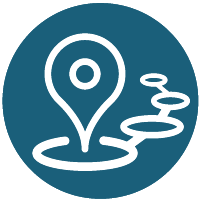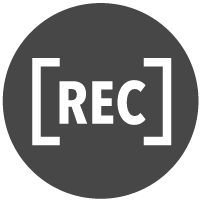The Evidence Based Practices of Digital Literacy: Strategies that Drive Student Growth
,
HBGCC - Lila Cockrell Theater
Session description
Outline
ntroduction (10 minutes)
Overview of the importance of digital literacy in today's educational landscape and workforce. Introduce the evidence-based practices that form the foundation of the Team4Tech Digital Literacy Toolkit.
2. Exploring Evidence-Based Practices (15 minutes)
Highlight the core evidence-based strategies for developing digital literacy skills, supported by research and case studies.
3. Applying the Digital Literacy Toolkit (20 minutes)
Demonstrate how to use the Digital Literacy Toolkit to create engaging and effective learning experiences. Share examples from classrooms where these strategies have been successfully implemented.
4. Connecting Digital Literacy to Employability Skills (10 minutes)
Discuss how digital literacy skills translate into employability skills, preparing students for the future workforce. Facilitate a Q&A session where participants can ask questions and share their thoughts on connecting digital literacy to career readiness.
5. Resources and Next Steps (5 minutes)
Provide participants with access to the Digital Literacy Toolkit and additional resources for further development. Share a QR code or link for attendees to access the toolkit and encourage them to join a follow-up community for continued support.
Supporting research
Bhatt, I., de Roock, R., & Adams, J. (2015). Diving deep into digital literacy: emerging methods for research. Language and Education, 29(6), 477-492. doi: http://dx.doi.org/10.1080/09500782.2015.1041972
Britten, J. (2017). 4 Myths and 4 Truths of the Empowered Learner. ISTE Blog. [https://www.iste.org/explore/ISTE-Standards-in-Action/4-myths-(and-4-truths)-about-empowered-learners](https://www.iste.org/explore/ISTE-Standards-in-Action/4-myths-%28and-4-truths%29-about-empowered-learners)
Britten, J. (2017). Getting to the Heart of the Empowered Learner. ISTE Blog. https://www.iste.org/explore/ISTE-blog/Getting-at-the-heart-of-the-empowered-learner
Britten, J. with others (2018). EdTech in K12 Classrooms. ISTE: Arlington, VA.
Britten, J. with others (2016, 2021). Digital learning pathways for ISTE student standards. ISTE: Arlington, VA.
Britten, J. (2021). Superintendents Roadmap: Communicating effectively about educational initiatives in digital learning. ELAN: Indianapolis, IN.
Britten, J. (2022). Building a global community of practice. Team4Tech: Menlo Park, CA.
Britten, J. (2023). Codesign toolkit. Team4Tech: Menlo Park, CA.
Hutchison, A., & Colwell, J. (2014). The Potential of Digital Technologies to Support Literacy Instruction Relevant to the Common Core State Standards. Journal of Adolescent & Adult Literacy, 58, 147-156.
Lammers, J.C., & Astuti, P. (2021). Calling for a Global Turn to Inform Digital Literacies Education. Journal of Adolescent & Adult Literacy.
Njenga, J.K. (2018). Digital literacy: The quest of an inclusive definition. Reading & Writing.
Passey, D. (2008). Real purpose, real audience and real value: researching contributions of digital literacy to learning.
Ryan, M. (2013). The pedagogical balancing act: teaching reflection in higher education. Teaching in Higher Education, 18, 144-155.
Singh, M. (2018). Digital Literacy: An Essential Life Skill In the Present Era of Growing and Global Educational Society. Journal of Advances and Scholarly Researches in Allied Education.
Tham, J.C., Burnham, K., Hocutt, D.L., Ranade, N., Misak, J., Duin, A.H., Pedersen, I., & Campbell, J.L. (2021). Metaphors, Mental Models, and Multiplicity: Understanding Student Perception of Digital Literacy. Computers and Composition, 59, 102628.
Vodă, A.I., Căutișanu, C., Grădinaru, C., Tanasescu, C., & de Moraes, G.H. (2022). Exploring Digital Literacy Skills in Economics and Social Sciences and Humanities Students. Sustainability.
Presenters

Session specifications
Topic:
Grade level:
Audience:
Attendee devices:
ISTE Standards:
Citizen
- Foster digital literacy by encouraging curiosity, reflection, and the critical evaluation of digital resources.
- Use technology to create, adapt and personalize learning experiences that foster independent learning and accommodate learner differences and needs.

 Back
Back Trips and Tours
Trips and Tours Streaming Session
Streaming Session Recorded Session
Recorded Session